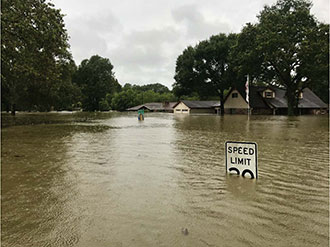|
|
Last Modified on Oct 14, 2024
Experiencing the intense aftermath of a hurricane can be overwhelming. If you find yourself homeless for the holidays and confused about what is and isn’t covered by your homeowner’s insurance, stop and take the time to find out more before you begin rebuilding or repairing the damages. This is vital! You could compromise your ability to file a claim if you fix things before the insurance company gives you the “go ahead.”
Gainsburgh, Benjamin, David, Meunier & Warshauer, L.L.C. are very familiar with these kinds of claims and can work with you and your insurance company to ensure your claims are processed quickly and correctly – getting you your money as fast as possible.
Possible Damage from Hurricane Ida
All kinds of damage could have happened to your home, business, or more from Hurricane Ida. Some of the physical damages may include:
- Broken windows or glass doors and furniture
- Water damage
- Flooding
- Roof damage
- Landscaping destroyed
- Outside buildings, sheds and/or garage structural damage
- Foundation problems
- Automobile damage
These damages can happen in many ways. Extreme amounts of water can bring flooding and damage that cannot be controlled as much as you try. High winds create their own problems destroying all kinds of things, including structures and vehicles as well as bringing down telephone and power lines.
Homeless for the Holidays – Steps to Getting Your Claim Paid Fast
- Get Things Started – A.S.A.P. The first step in speeding up your Hurricane Ida claim being paid out is to call your insurance agent as soon as you are able. Your agent is someone that will work on your side with your insurance company to get you paid fairly and timely. Contacting your agent immediately and keeping track of when you call and who you talk to will be incredibly valuable throughout the claims process. Stay in contact through phone calls and emails often, and don’t delete any kind of paper trail that you have with your insurance agent and company. Your attorneysmay need to see the communication you have had with your insurance company, and it could end up helping your case tremendously.
- Don’t Make Repairs Too Quickly. Your homeowner’s insurance will not want you to begin repairs immediately. An adjuster needs to be able to come and quickly see the damage that has been done and properly assess what needs to be repaired. If you have already made changes, it will be impossible for them to judge the real harm that has been done, and it could affect how much you get back for future repairs.
Although you shouldn’t start any big repairs, making some small fixes to protect the remaining parts of your home that wasn’t destroyed is a good idea. Cover places that have been left open to the elements like broken windows and doors or damaged roof areas. Anything that you must purchase to make these temporary fixes will be able to be reimbursed by your insurance company, so keep track of all your expenses and receipts.
- Take Pictures of Everything! The best thing to do is take pictures of your home (room by room) and belongings before something like a hurricane takes place. If you haven’t already taken this step beforehand, begin as soon as you can. Take inventory of everything. Make lists of your belongings and what has been damaged. Once this has been done, the adjuster will be able to look at your list and quickly see what should be included in your claim. Any copies of receipts that you may have for your belongings, furniture, and electronics will be a big help in determining value as well. Do your best, that’s all you can do!
- Calculate Costs of Repairs. While waiting for the adjuster to come and your claim to be evaluated, you can go ahead and begin to get bids from different contractors to find out how much it will cost to repair the damages. Do not give any contractors money before you know how much you will be getting from your insurance. Knowledge is power, though. If you are able to meet with your insurance company and attorneys after being educated, you will feel and appear more confident knowing what you deserve.
- Make Every Attempt to Meet with Your Insurance Agent and Adjuster in Person. We all know that talking with someone face to face is very different from talking over the phone or passing emails back and forth. If you are able to meet with your agent and especially your adjuster in person, you will be able to show them exactly what has been damaged.
- Keep Receipts and Records of Expenses You Incur While Displaced from Your Home. If you have been evacuated from your home after Hurricane Ida, make it a point to keep meticulous records of all your expenses. This can include living expenses such as hotel stays and meals that you wouldn’t have otherwise had if you were still in your home. These expenses can often be reimbursed up to a certain amount.
- Get Professional Help with your Claim. One of the best tips when you’re going through an insurance claim process, is hiring professional help. Obtaining professional help from the start will be the decision you look back on and really appreciate. The experience of insurance attorneys in working with insurance companies is invaluable. They will get you the most you can in your claim. In addition, your attorney can help you with paperwork, meetings, and help to avoid the pitfalls that are sure to head your way when dealing with insurance companies.
Gainsburgh, Benjamin, David, Meunier & Warshauer, L.L.C. are experienced insurance claim attorneys ready to help you get the compensation that you need to repair and rebuild your home or business whether you’re homeless for the holidays or any other time of the year. So don’t risk getting the results you deserve. Call (504) 522-2304 for a consultation appointment today.





